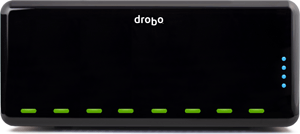5
2
I'm looking to buy somewhere around 10TB of physical storage for personal use. Ideally it would come in the form of a single HDD array or network storage. I don't have any experience with RAID, but it looks like a RAID 1 setup would give me the redundancy that I want. I found an HDD enclosure on Newegg that looks like it might work for me. What are some of my other options for managing this much storage (with redundancy in case of disk failure)?
edit 1: By suggestion, I will be looking for a RAID 5 solution rather than RAID 1. It will give me the redundancy that I need using less drives.
I feel that I should clear up exactly what I'm looking for:
- 8+TB of storage space (preferably in one array)
- Redundancy in case of disk failure
- Used for backups and long-term (regularly accessed) storage
- Low(ish) price: This is for personal use, so I'd rather not pay for any extra features.


1
Have you considered cloud services such as Amazon S3 – good option IMHO if you mainly need reliable storage and don't mind accessing it over network. Whatever you do, don't get something like what I got: http://superuser.com/questions/108596/how-to-get-data-out-of-a-maxtor-shared-storage-ii-that-fails-to-boot; RAID1 doesn't keep you warm when something else breaks and it's difficult to even access the disks.
– Jonik – 2010-02-18T17:43:50.223Online storage is out of the question for me. My internet wouldn't be fast enough to pull down the data as fast as I'd need it, and I can't guarantee that I'll have internet access when I need the data.
Thanks for the tips on Maxtor Shared Storage, but I wasn't even considering any solutions where I don't have full control and access to the disks. – sgtFloyd – 2010-02-18T18:07:04.287
An NAS—essentially a networked storage server—is precisely what you need. – bwDraco – 2015-01-24T01:41:40.297